What does this biochemist do?
What is a biochemist? She is interested in understanding the chemical processes and transformations that occur within a living organism. Specifically, I am an RNA-protein biochemist. Using biochemical and molecular biology approaches and yeast as our model organism, my lab aims to understand the molecular-level details of how ribosomes, the machinery responsible for protein synthesis in all cells, are assembled. Since protein synthesis limits cancer cell growth, elucidating the mechanisms of players involved in ribosome assembly could provide insight into possible therapeutic avenues. My undergraduate researchers and I specifically focus on characterizing DEAD-box proteins, a family of RNA-dependent ATPases. Since these enzymes are highly conserved in both sequence and structure yet are each essential for proper ribosome formation, we are particularly interested in elucidating how they achieve their substrate specificity.
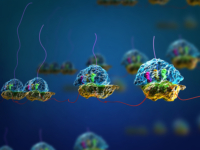
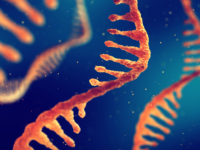
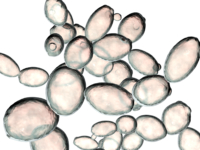
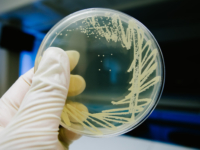
How do we do it?
Techniques that are regularly used in our lab include: PCR; DNA cloning; DNA and protein gel electrophoresis; western blotting; protein overexpression and purification; RNA unwinding and binding assays; ATPase assays; yeast serial dilutions
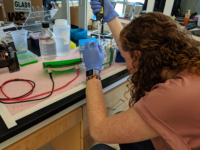
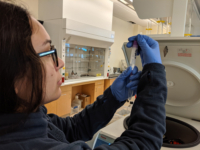
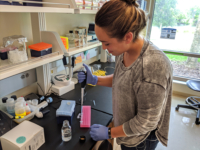
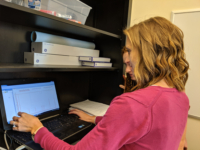
Other research interests
Additional research in my lab involves investigating the physiological stress response in both dogs and their humans that live on Eckerd’s campus. As more and more college campuses are becoming pet friendly to help ease the transition of students into college life, we must also consider the implications this has on the well-being of the dogs themselves. In collaboration with the Comparative Psychology Lab at Eckerd College, we are monitoring the physiological stress response in our on-campus dogs. Like other projects in my lab, this research involves undergraduate students from experimental design to test for salivary cortisol levels to manuscript preparation.
As a biochemist at a small teaching college, I am also interested in high-impact teaching practices that can best enhance the educational experiences of my undergraduates. To that effect, I have been focusing on incorporating course-embedded undergraduate research experiences (CUREs) into both my introductory level chemistry and advanced level biochemistry courses so that all of my students are exposed to genuine research experiences. Not only is this approach beneficial to the student, but it has been invaluable for progressing research in my lab as well.